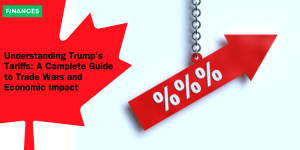Beyond Tariffs: How Storage Costs and Stockpiling Are Reshaping the Tequila Industry
Anúncios
The Looming Threat of Tariffs
Overview of Proposed 25% Tariffs
The proposed 25% tariffs on Mexican imports, including tequila, have been a source of unease for the industry.
Primarily aimed at addressing broader trade issues, these tariffs threaten to significantly impact import costs from Mexico, the exclusive producer of tequila.
Anúncios
The idea of imposing tariffs initially surfaced early this year and appeared briefly in force on March 4 before being suspended.
The threat, even if unimplemented, has led to significant financial and operational strain on the tequila sector.
Anúncios
Uncertainty and Its Ripples
The uncertainty brought on by the on-and-off again threats of tariffs has created a ripple effect across the industry.
Producers, investors, and analysts recognize that the very nature of these threats has caused substantial reactive measures.
Companies like Diageo and Becle, which account for significant tequila imports, have had to pivot sharply, adjusting their strategies to mitigate potential impacts.
This ambiguity has caused market disruptions and a flurry of preemptive actions to shield against potential economic blowbacks.
Tequila: A Mexico-Exclusive Product
Tequila’s unique position as a Mexico-exclusive product places it in a particularly precarious spot.
By law, tequila can only be produced in certain regions of Mexico, which constrains sourcing options and makes U.S. importers exceptionally vulnerable to trade policies affecting Mexican imports.
This dependency underscores the industry’s sensitivity to changes in trade regulations.
It also explains the intense reactions to the tariff threats, with businesses stockpiling supplies and incurring significant expenditures to secure inventory ahead of potential cost increases.
This foundation of financial anxiety and operational disruptions set the stage for an industry urgently adapting to maintain stability in the face of unpredictable trade policies.
Industry’s Costly Preemptive Measures
Widespread Stockpiling by Producers and Distributors
Faced with the anxiety of potential 25% tariffs on Mexican imports, tequila producers and distributors scrambled to ensure their supplies would not be affected.
Stockpiling has become a widespread measure in the industry.
The goal is to create a buffer against the uncertainties looming over the trade discussions.
This means that companies are amassing substantial inventories, enough to last for several months.
Breakdown of Additional Costs
| 📌 Expense Category | 📑 Description |
|---|---|
| Overtime and Operational Costs | Calabasas Beverage Company, for example, has reportedly spent up to $2 million in overtime and operational expenses to keep up with the heightened demand for expedited production. This figure encompasses the costs of running distilleries at full capacity, staff working extended hours, and logistics to make it all happen. |
| Storage Costs | Shipping containers, which are crucial for holding the tequila before it hits the market, are far from cheap. Companies like InvestBev are dishing out as much as $20,000 per container. These expenses quickly add up, pushing brands toward the edge of financial viability, especially if they’re holding stock for extended periods based on unpredictability in trade policies. |
Transition to Business Operations Under Pressure
The landscape of the tequila industry is dramatically changing under these pressures.
Besides inflating storage costs, the necessity to keep production lines running at full tilt is leading to unforeseen consequences for both large and small businesses alike.
Business Operations Under Pressure
Delayed Expansion Plans and Frozen Hiring Processes
The looming threat of tariffs has placed tremendous pressure on the operations of tequila businesses.
Many producers have had to put their expansion and hiring plans on hold to focus on mitigating the potential impact of tariffs.
Calabasas Beverage Company, for instance, has halted new product launches and paused hiring, leading to missed growth opportunities and operational stagnation.
These pauses are not merely administrative; they represent a significant financial hit.
By diverting resources to stockpiling and dealing with tariffs, companies are unable to invest further in their growth, delaying new jobs and limiting market expansion.
Storage Costs Forcing Price Increases
One of the most immediate casualties of tariff fears is the significant increase in storage costs.
Many companies, including InvestBev, are paying up to $20,000 per shipping container to store their stockpiled tequila.
These expenses add up quickly, eating into profits and increasing operational costs.
Even if the proposed tariffs are not implemented, the high storage costs alone could force brands to raise prices.
For the high-profile brands under pressure, such as Diageo and Becle, this is a difficult pill to swallow, as these costs are ultimately passed on to consumers.
However, smaller businesses feel this strain more acutely, potentially jeopardizing their survival.
Impact on Major Producers and Small Businesses
The impact of these pressures is felt across the spectrum of tequila producers.
For major players like Diageo, whose Don Julio brand heavily contributes to their market performance, the cost implications are significant yet manageable due to their scale and resources.
Diageo and Becle have both front-loaded inventory to mitigate immediate risks.
On the other hand, smaller businesses face a harsher reality.
They lack the financial buffers and market influence of larger competitors, making them more vulnerable to any increase in costs.
The accumulation of stock and the related financial strain may force some small businesses to shutter, altering the landscape of the tequila market.
As the industry braces for either prolonged uncertainty or direct cost implications, it must adapt rapidly to navigate these turbulent times.
Market Dynamics and Consumer Behavior
Examination of Consumer Stockpiling Behavior and Market Response
The uncertainty caused by potential tariffs has made both businesses and consumers act preemptively.
Restaurants and individual consumers are stockpiling tequila, leading to noticeable shifts in market dynamics.
For example, La Contenta Oeste, a New York-based Mexican restaurant, ordered 120 cases of tequila by January, normally buying only 20 cases at a time.
Similarly, individuals like Richard Paige, an Indianapolis resident, have ensured their personal tequila supplies are well-stocked for months.
Analysis of Potential Sales Patterns: Initial Boost Followed by Slowdown
These stockpiling efforts are expected to influence sales patterns.
There may be an initial surge in sales as businesses and consumers build up their reserves.
However, this spike is likely to be followed by a sharp decline as the market adjusts to the sudden abundance.
This cyclical pattern of initial sales boost due to stockpiling followed by a slowdown can make for a “very quiet” quarter for big tequila producers, as noted by Trevor Stirling, an analyst at Bernstein.
Impact on Restaurants and Small Businesses Adapting to Uncertain Conditions
Restaurants and small businesses are particularly vulnerable to the fluctuating conditions in the tequila market.
Many establishments depend heavily on tequila sales, especially for products like margaritas.
The financial strain brought about by the uncertainty of tariffs and storage costs can be acute.
For instance, while larger businesses like Diageo and Becle have the capability to front-load inventory, smaller operations may lack the financial flexibility to do so without significant risk.
Understanding these market dynamics and consumer behaviors provides valuable insight into the broader effects of tariff threats on the tequila industry.
Moving forward, there are various strategies and adaptations that stakeholders will consider to maintain vibrancy and growth in an unstable trade environment.

Long-term Industry Implications
Shifting Towards New Markets
The tequila industry is leveraging its market potential by exploring avenues beyond the United States.
As the threat of tariffs continues to loom, businesses are proactively seeking to diversify their market base.
This shift is particularly evident in regions such as Europe and Asia, where the demand for premium spirits, including tequila, has been steadily increasing.
Producers are investing considerable resources to establish their brands in these foreign markets, anticipating a more stable and less tariff-dependent future.
Lasting Impacts on the U.S. Tequila Sector
The uncertainties surrounding the proposed tariffs have already started to show their impact on the tequila industry in the United States.
One of the immediate effects has been the financial strain from stockpiling and increased storage costs.
The apprehension of tariffs has curtailed expansion projects and hampered the dynamics of business operations.
While the larger players like Diageo and Becle might weather these challenges due to their substantial resources, smaller businesses are at a higher risk.
This climate of uncertainty may dampen innovation and growth, leading to a potentially less vibrant sector.
Industry Adaptation Strategies
The industry is also adapting in several innovative ways to counter the unpredictability of trade policies.
- 🥃Stock Management: Effective inventory management and leaner supply chains are becoming critical. Companies are honing their strategies to reduce the excessive stockpiling that can lead to elevated costs.
- 🥃Pricing Strategies: To address potential cost hikes, brands are exploring dynamic pricing models that can better reflect supply chain costs and market demand.
- 🥃Exploring Technology: Implementing advanced technology in production and logistics helps streamline processes and reduce operational expenses, making brands more resilient against sudden tariff changes.
The tequila industry is thus showing adaptability by broadening its horizons and developing sturdy strategies to mitigate trade uncertainties.
This ongoing adjustment phase signifies a transformation that could redefine the industry’s landscape in the long run.







